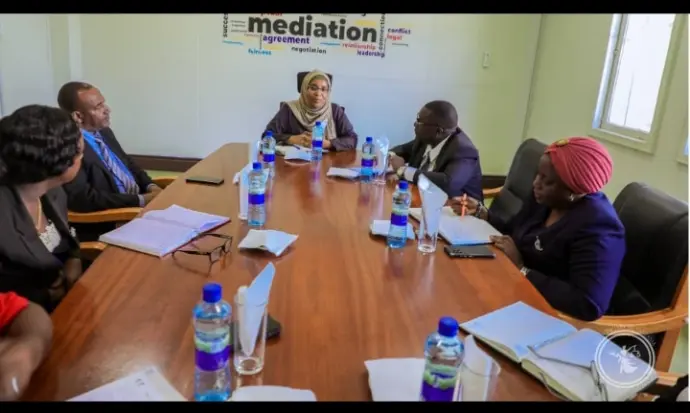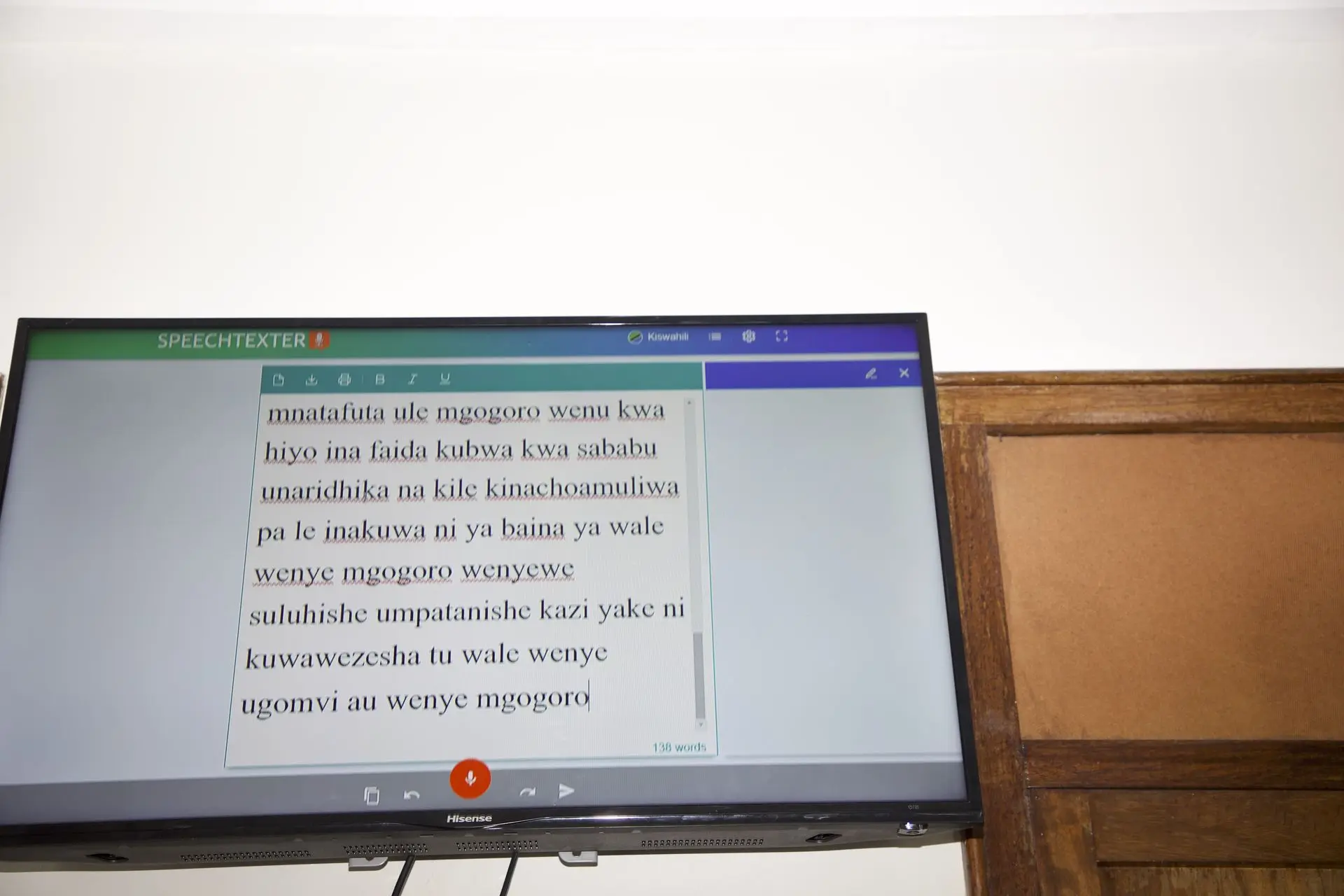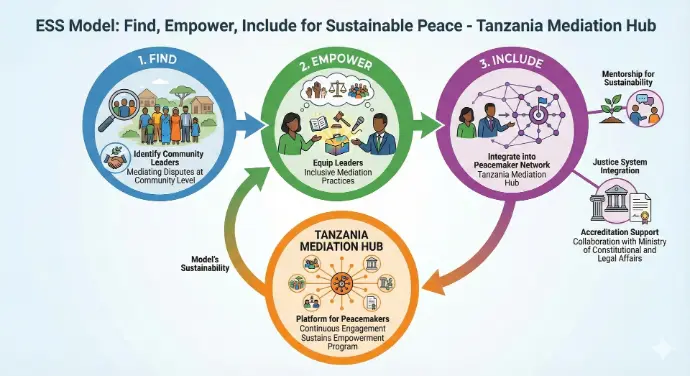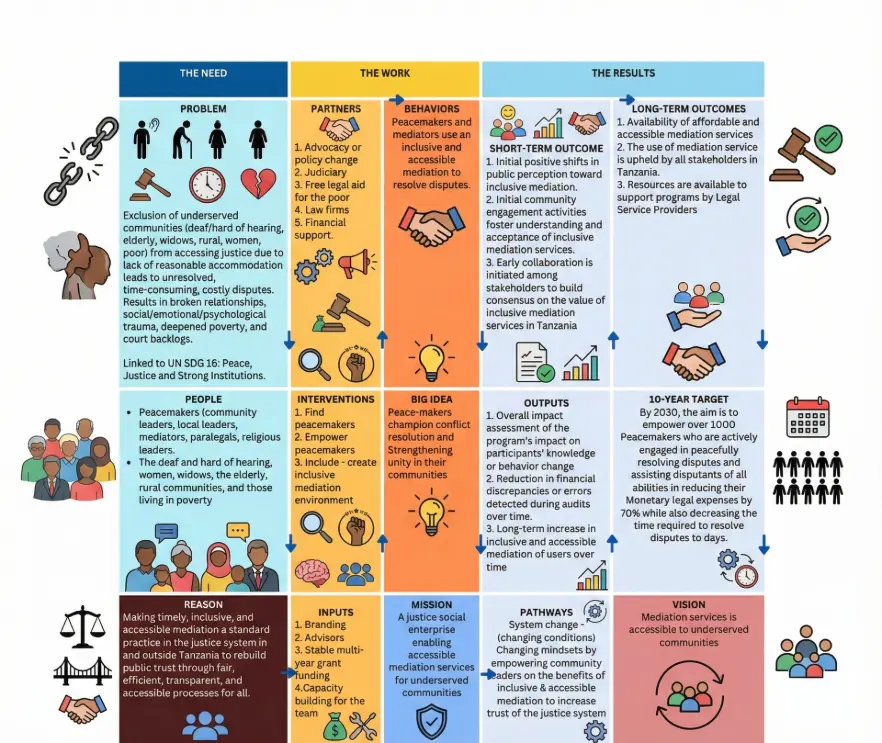Model
Find, Empower, and Include

1. Find
We identify community leaders who mediate disputes at the community level.

2. Empower
We equip these leaders with inclusive mediation practices.

3. Include
integrate trained leaders into our Peacemaker Network, known as the Tanzania Mediation Hub. Through this platform, we continue to mentor them for sustainability. We include them in the justice system by supporting their accreditation process with collaboration with the Ministry of Constitutional and Legal Affairs.
Model's Sustainability
A Tanzania Mediation Hub for peacemakers keeps us engaged with community leaders and continues the empowerment program.

Tanzania Mediation Hub
Theory of Change

Our theory of change addresses the exclusion of underserved communities from the Tanzania's justice system by promoting inclusive mediation and building a network of peacemakers. We aim to establish inclusive mediation as the standard in the justice system, ensuring fairness, upholding the rule of law, and reducing case backlogs. This citizen-centric approach enhances democratic dispute resolution, moving away from the adversarial system. It rebuilds trust in the justice system by empowering individuals and changing mindsets. This aligns with the United Nations Sustainable Development Goal 16, promoting peaceful and inclusive societies with access to justice for all, and building effective, accountable institutions.